There aren’t many upsides to running a music mag these days; Bands, labels and PR people basically expect you to work as an unpaid extension of their operations, available at a moment’s notice to help spruik whatever it is they are trying to hawk, and generally treating the idea that you might like some recompense for your toil (beyond that nebulous commodity ‘exposure’) with a mixture of incredulity and downright disdain. So it’s always a breath of fresh air to talk to one of your long-term heroes – for the first time, in this instance – about a subject that will derive no pecuniary gain, but simply to celebrate a man’s art and perhaps highlight a work of genius that has gone under the radar in many quarters for far too long.
I’m talking about Robin George, and his tremendous 1984 opus Dangerous Music. It’s a fabulous album and a perfect one with which to kick off our new “Classics: Track-by-Track” series.
Thanks for talking to Sentinel Daily, Robin; it’s a privilege and an honour to have you kicking off this series! If I can just ask you for a little bit of history to set the scene for our readers, what had you been doing for the months leading up to the recording of Dangerous Music? “Well, I’d been touring extensively with David Byron of Uriah Heep in The Byron Band. I more or less came straight off the tour and in to the studio to start Dangerous Music. So I was well practised, let’s say…”
But yours was very different music to The Byron Band’s? “I co-wrote The Byron Band album (On the Rocks, 1981) with David. I’d been writing the Dangerous Music songs over a period of time – it was what I was doing when I wasn’t with David. So there are influences there from David on the Dangerous Music Album. It’s interesting because the guy who co-wrote a lot of the music on Dangerous Music, a guy called Peter Lee Stirling (who was very famous in Europe under the name Daniel Boone), actually introduced me to David. So it was a nice little progression”.
At the time it was thought of as quite a hi-tech record wasn’t it? Very futuristic sounding. “Yes. It certainly was, but I guess that’s because that’s what it was! I don’t want to jump the gun but the track Shoot on Sight was actually about technology taking over music, with all the new romantics and all that rubbish… and then we embraced the technology ourselves. Hypocrites or what!”
As you say we don’t want to jump the gun so let’s go to Dangerous Music; I’m interested to hear the first things that spring to mind about the writing and recording of each song, so let’s go straight in with Heartline. “I remember rewriting the song at least twice if not three times to get the chorus just right. It’s the usual sort of break-up story I suppose… There’s not much more to say other than that I came up with the riff when I was doing a session for another band. Their song never did anything so I used it for myself. It’s still, allegedly, a catchy little pop song (laughs)”.
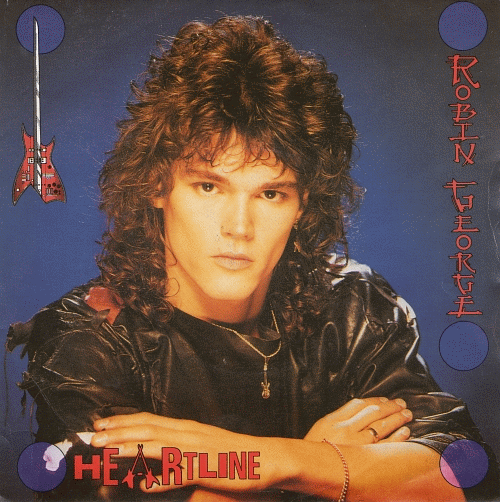
I think it is. I was saying to my wife the other day that I was an absolute slave to that song in 1984. Heartline was the song that introduced me to you. It was a huge song for me as a seventeen year old. For a little while it seemed to be everywhere – you’d even hear it as a jingle on Alan Freeman’s rock show. “Good old Fluff! It was his record of the year as well!”
It’s such a good song! Were you writing it to be released as a single? Or did you leave that up to the record company? “There was no choice. I remember Gerry Bron, who ran Bronze Records coming into the studio, hearing Heartline and saying ‘that’s the single!’. And so it became the single!”
Another single was Spy. Tell us a bit about Spy. “Well it’s obviously about electronic surveillance and stuff like that, which existed a little bit back then but boy is it upon us now! It was like seeing the future really. A lot of people seemed to like the FBI/CIA angle. Spying!”
Did you have a lot of say in the making of the videos for those two tracks? “Oh yes, we used to have lot’s of fun. I mean the Heartline video is absolutely ridiculous but boy was it fun to make! I don’t ride horses, but the one I did ride in the video ran away with me through a forest, bloody hell! The horse’s name was Eddie. We took him on to TV shows… riding through London on a horse when you don’t really ride is not fun! Was there a video for Spy? I can’t remember?”
I thought there was, I was watching it the other day, but that may well have been something somebody put together after the fact. My memory is appalling. Let’s move on. “It’s a lot of years we’re talking about here.”
It is. A frightening amount of years. “But we’re still here!”
We are. Next track – No News Is Good News. “It’s just about red-top newspapers, as we call them in the UK. They diss people, then they’re great the next day, then rubbish again the next day… it wasn’t about any particular person it was just about the general state of the British Press”.
It’s no better now! French Kisses? “I’d been in France. Say no more. It’s just a love story. The funny thing about that is that because of the lyrics – viens chez moi – people thought I could speak French, so I started getting masses of French fan letters! I didn’t know what they were on about but I knew they were good”…

The next song, Stolen From My Heart, has a superb riff on the chorus. Where did you come up with that one? “I co-wrote it with Daniel Boone. As I say, as musicians, we were really objecting to computer technology that seemed to be taking over. But then we realised it was easier to embrace the technology. Rather than doing demos with other musicians we were able to record everything ourselves. But I guess it was trying to say music has been stolen from my heart. By electronics, and then by our own fault!”
I remember the back of the Heartline twelve inch credited then-Magnum drummer the late Kex Gorin simply as playing ‘cymbals’. “Yes, I had to add something live to the drums. Kex came down and we had a real good time with him just playing cymbals! And then of course Kex joined the Dangerous Music Band for the tour. I don’t know why I didn’t just use him for the record!”
I saw him with you at Hammersmith Odeon on that tour. A great performance. But I can’t remember who you were supporting. “I think it was Uli Jon Roth”.
No, it wouldn’t have been him. I didn’t like him! “Nor me. It was quite funny, because after we’d finish the set we’d run out into the bar and half the audience wouldn’t go to see Roth because we were signing autographs! You might have seen us with REO Speedwagon”.
That’s the one! I’ve still got my Dangerous Music sweatshirt from that show somewhere. Obviously it doesn’t fit anymore. Shout is the next song on the original track listing. Let’s talk about that. “That was again co-written by Daniel Boone. It was written to be an encore song for live gigs, basically. And it did work. People used to shout!”
So was Heartline written as an album opener then? Is that how you write, with a beginning, middle and end in mind? “I wish I did! I’ve just finished my new album – my birthday was three days ago and the final mix of the final track came in then, and we’re still trying to get the order right. It’s so complicated, when you’ve got a bunch of good songs, to get the order right. But Heartline was always going to be the opener on Dangerous Music”.
Next up is Showdown, which I think features Phil Lynott on bass? “It certainly does! Again, just a ‘spotting somebody in the crowd’ love song, as it were… (former Magnum keyboarder) Mark Stanway plays keyboards on the track, and he came down to the studio with Phil. Phil said ‘I’ve got my bass in the car, I could play something for you!’ We said ‘nah, don’t bother!’(laughs). He literally rushed out to the car, got his bass, sat down, played it, and we had a really good friendship from that moment on”.
So that was before you played on his single Nineteen? “Yes. That was the next thing I did with Phil and then he invited me and Brian Downey to reform Thin Lizzy. And of course we said yes! Phil and I were writing and recording demos, and then unfortunately we lost him. And all those tapes just disappeared. They’re somewhere, they exist, but I don’t know where they went”.
That’s a shame. So how far advanced would you say the project was at that point? “We were well on the way. Phil was really fired up about it as there was a really good deal on offer, Brian was, and still is a really nice bloke and we were all looking forward to it very much indeed. But it wasn’t meant to be, unfortunately”.
I guess not. Let’s move on and have a chat about Hitlist. “Again co-written with Daniel. The words didn’t matter so much as a good title. It’s about the music industry, basically, with the hitlist taken to mean ‘get me a hit record!’ or a ‘get outta here!’ sort of thing. You can read it either way”.
So, even though you had a good deal with Bronze Records, were you feeling disillusioned with the industry at that point? “No, Bronze were fabulous, and when they went bust it just shook my world; Gerry was brilliant, he could have just stopped my career completely then – I did that myself! (laughs) – but he released me from my contract, said ‘you’re free, go and do what you want and be successful’. He was a lovely bloke”.
I have to say I’ve never heard a bad word said about Gerry Bron. “No, you wouldn’t. He was great. Very honest. He made me money! In those days you got good advances and Gerry looked after me, he even helped me buy my first house. He was a man”.
Let’s have a go with Shoot on Sight. “With Daniel, with whom I co-wrote the track, words didn’t mean as much as the music. But I really liked the title Shoot on Sight, he agreed, so away we went. I do like the track. I’m not sure what the message is, but I think it’s pretty good”.
Now the last track on the original album is Don’t Turn Away. What do you remember about that one? “Lots, actually. My mum was taken seriously ill, and I wrote it for her. You know, ‘don’t turn away’, et cetera… but she got better. Unfortunately it was only just recently played at her funeral, and it still affects people. It’s obviously quite meaningful to me. Lyrically it’s very close to my heart”.
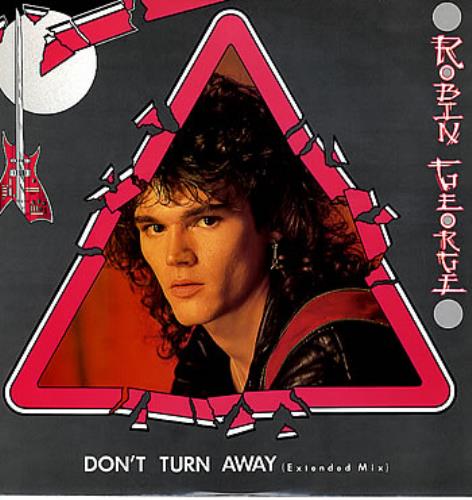
And that’s it as far as the original version of the album is concerned. But Dangerous Music has been re-released a few times since 1984, sometimes with a variety of other tracks tacked on the end, tracks like Space Kadett. Were they written during the Dangerous Music sessions and failed to make the cut or were they just added subsequently because they were available? “They were all recorded at the same time and some people… I don’t know how they heard Space Kadett… oh wait, it was the b-side of a single (Robin’s right – it was the b-side of Heartline) – some people absolutely loved Space Kadett. It was just about a druggy bird”.
That’s the album covered. Just as a sort of a postscript, was it a happy time for you overall, when you were recording that record? “Oh yeah! It was fab! When you think I was recording with people like Pino Palladino (now of The Who) who is still, for me, one of the best bass players in the world, and all the other musos, it was great. The music was defined, I knew what I wanted, I had a great recording engineer in Mark Dearnley, who really was great. It was a good time”.


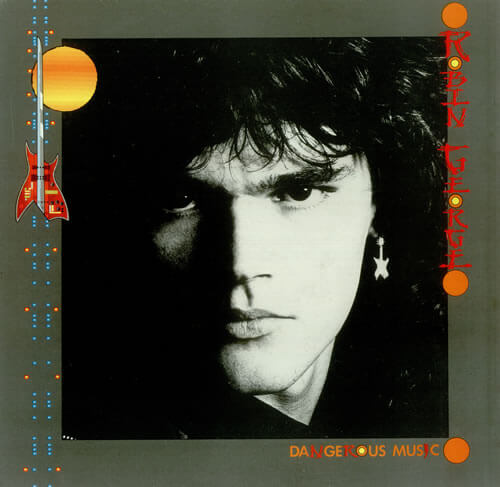

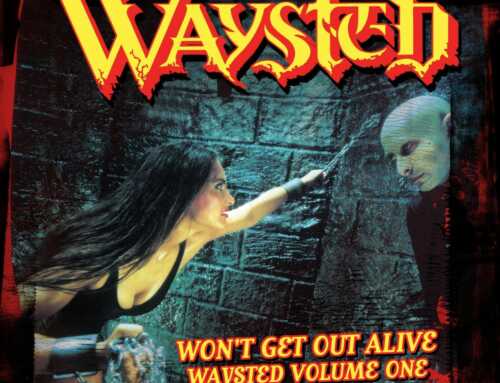
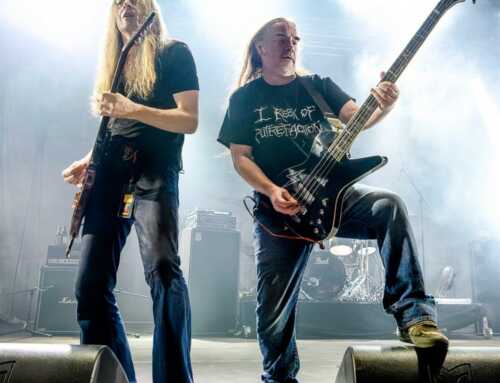

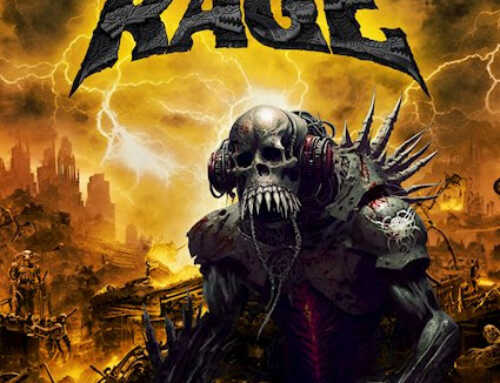
Leave A Comment